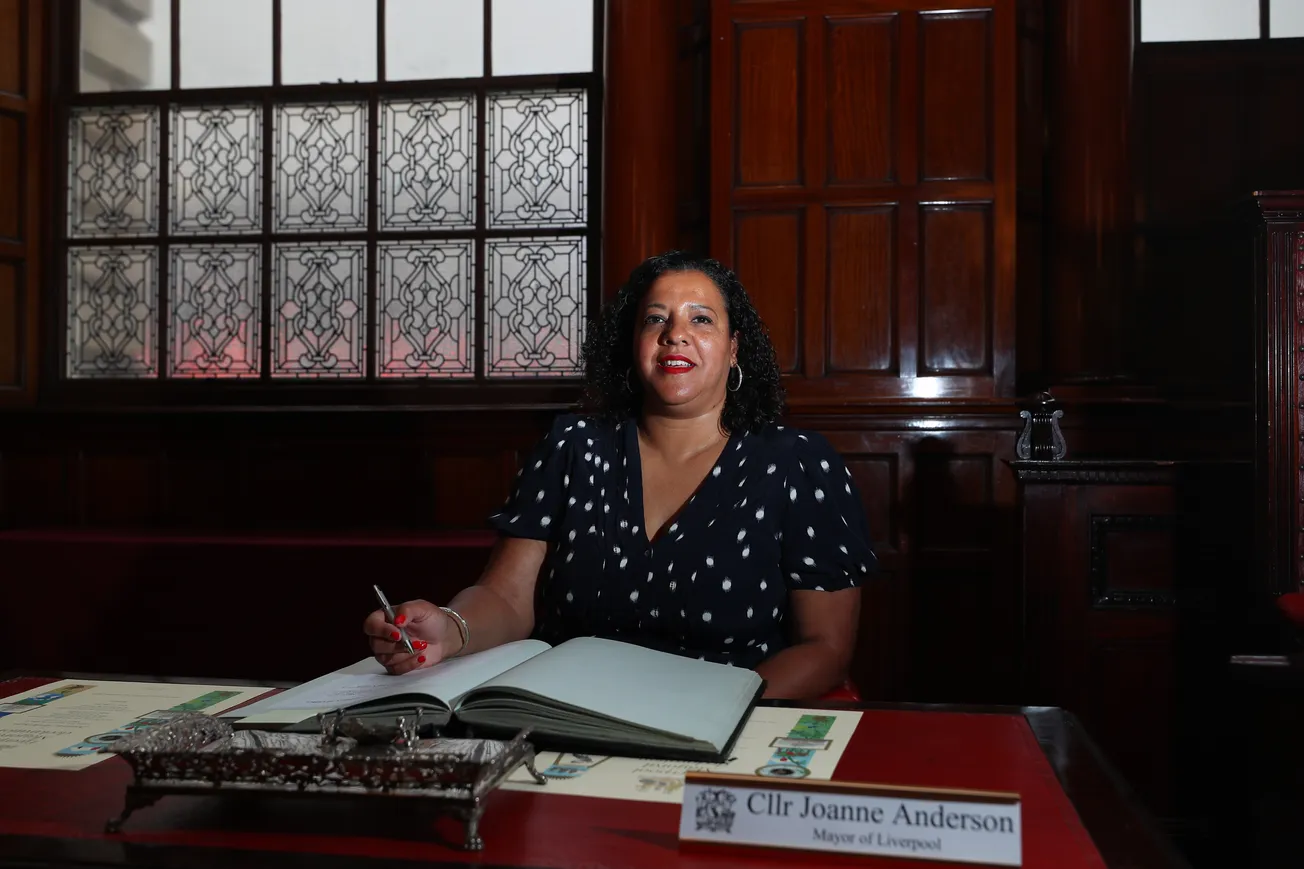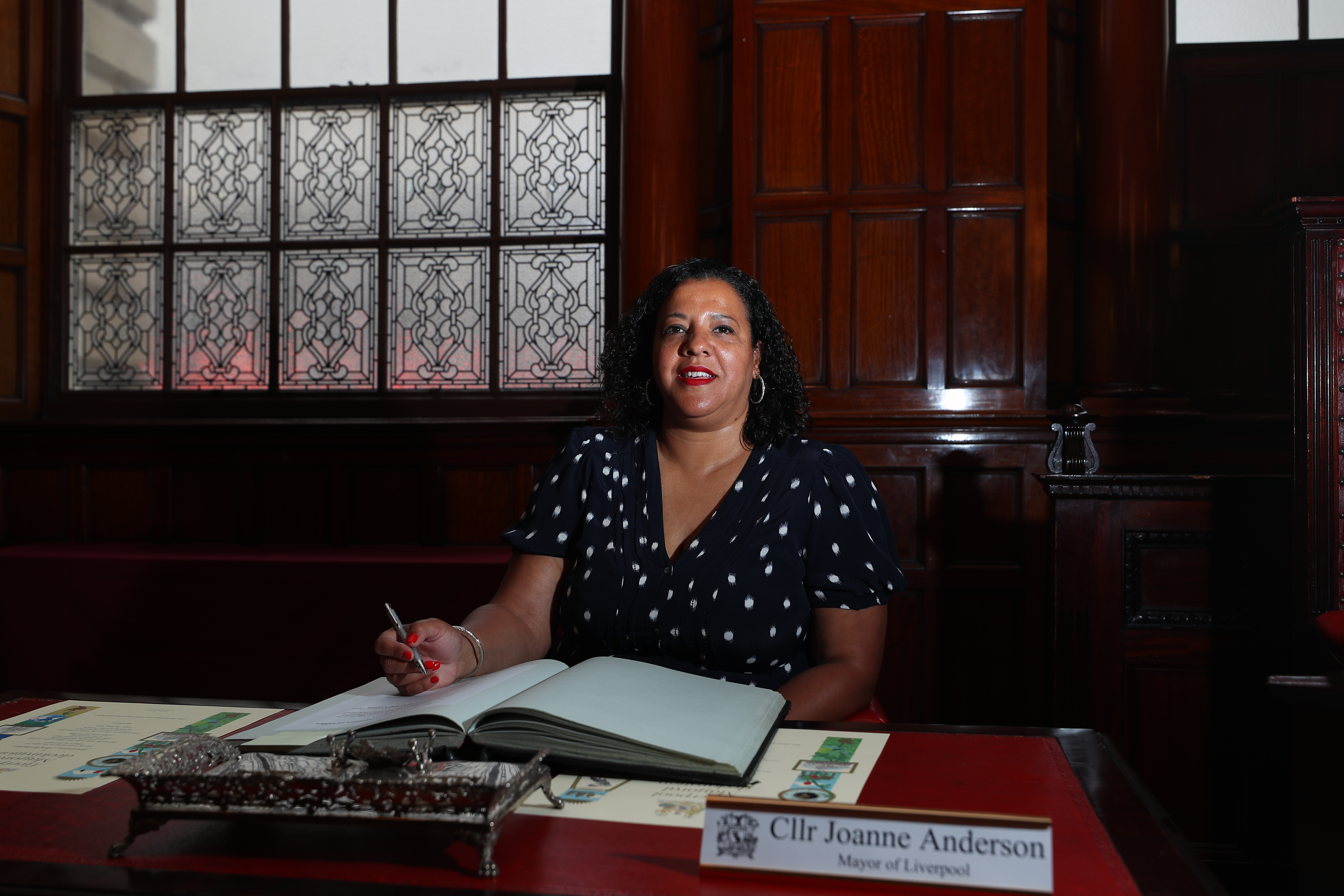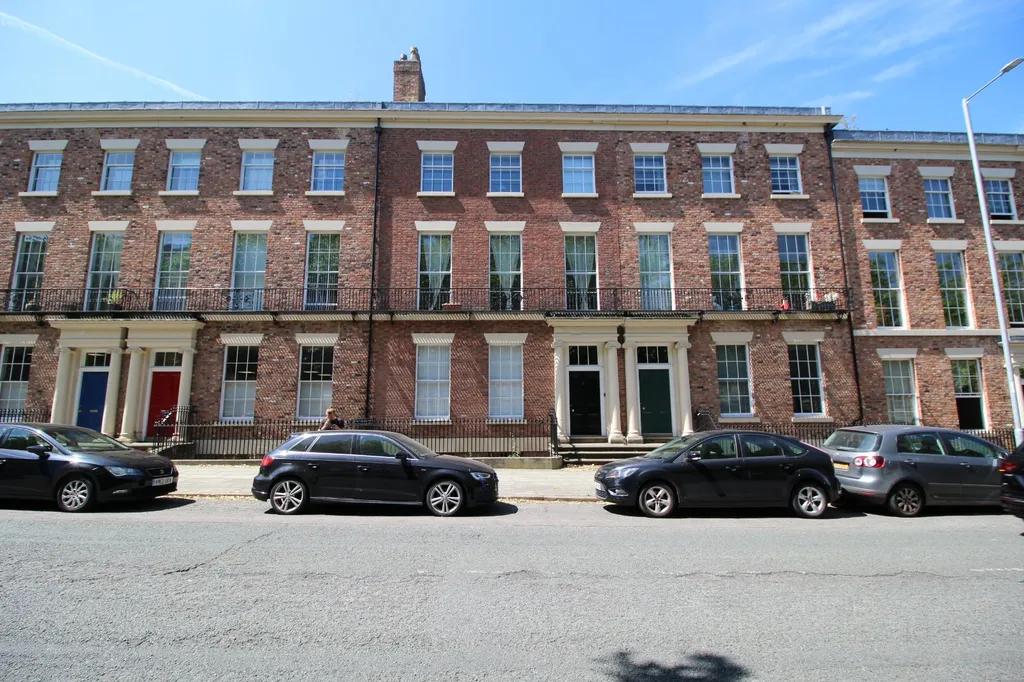A new farce in Liverpool: the council ignores its consultation and presses on

'There is no democratic mandate for any way forward'
Dear readers — Liverpool’s Labour administration has chosen to ignore the public consultation on the council’s governance model, an expensive and seemingly pointless exercise that once again raises serious questions about the competence of the people running the city. We explain what’s happened below. Before we get into it, some exciting news: today is Jack Walton’s first day on staff as a full-time reporter for The Post. Please do drop him a line on jack@livpost.co.uk if you have a story idea or want to welcome him to the team.
Meet The Post's second hire, @jlaverick99 🎉
— The Post (@liverpoolpost) 2:53 PM ∙ Jul 4, 2022
Jack interned for seven months and joined us on staff as a full-time reporter today. He has written some of our most popular stories, here are some of our favourites.
Hiring Jack has only been possible because of the support of our 443 paying members. We need to reach over 500 members by the end of this summer to keep growing the team and commissioning great freelancers. If you’d like to help secure the future of independent journalism on Merseyside and receive four editions of our journalism in your inbox every week, please consider hitting the subscribe button below. It’s just £7 a month, or it works out at £1.25 a week if you pay for a year upfront.
☁️ This week’s weather

The big story: A new farce in Liverpool: the council ignores its consultation and presses on
Top line: A public consultation into how Liverpool should be governed is set to be brushed aside by the Labour-run council. The council says it plans to scrap the mayoralty and return to the “leader and cabinet” system used by most councils, despite the mayoral option getting the most support in a poorly engaged public consultation.
The results: Of the three options on offer in the consultation, the mayoral system took the most votes at 40.9%. The committee-system (32.9%) was more popular than the leader and cabinet model (23.6%) of the non-mayoral options. It might strike Post readers as odd, then, that the least popular option will be implemented by the ruling Labour Group.
Poor turnout: Only 11,519 people took part in the consultation, which was held after mayor Joanne Anderson broke her 2021 campaign promise to hold a referendum on the question. That means fewer than one in 20 residents took part. Of those who did, just 2,721 respondents supported the leader and cabinet model.

Despite the outcome, Labour have attempted to claim a victory of sorts, an act of considerable contortion. Their argument is this: a majority of Liverpool residents have backed change in some form, and due to the low turnout the specific type of change they want cannot be known with any certainty. The party’s group chair Mary Rasmussen wrote to councillors:
None of the three models on offer — mayor, leader with cabinet or leader with committees — had majority support, although a plurality of the responses backed the leader with cabinet or committee options. The second point is that this consultation process was advisory but given the response rate was equivalent to just 4% of the city’s population, we do not believe it offers a representative view of public opinion across the whole of Liverpool. All of which means that the Labour group’s position remains the same: We are committed to change and want to see a leader and cabinet model introduced.
Labour Councillor Jay Roberts argued on Twitter that the consultation was “flawed in many ways” and pointed at the low number of votes. “Nevertheless, it showed a clear majority in favour of moving away from a directly elected mayor and towards a council leader model,” Roberts added. “Jay that is a big fat lie and you know it,” one person responded under his tweet.
In 2021’s elections, Labour stood on a platform of abolishing the mayoralty, concluding that it had become associated with the council’s recent scandals and hoping that it would inspire more confidence in the city’s governance. Having a mayor is supposed to speed up decision making and give central government and outside investors a clearer figurehead to deal with, but the system has been criticised for undermining democratic scrutiny.
Campaign pledge: Shortly after becoming mayor Joanne Anderson told BBC Radio Merseyside that she would set about getting rid of the position. “I’ve said I’d campaign to sack myself, and that’s what I would do,” she said. Anderson’s pledged legally binding referendum was then deemed too costly, and replaced with the cheaper consultation, which would only be advisory. Critics suggested that this distinction would allow Labour to steamroll whatever result came in with their favoured leader and cabinet model.
Due to the tiny turnout of around 4%, the consultation now has as many questions about its legitimacy as the council itself. An estimated total cost of £120,000, with 11,519 respondents, means the council has spent over £10 per respondent. Some residents pointed to the drab brown envelopes in which the letters were sent out as symbolic of a process which made no effort to engage the public.
The Liberal Democrats say they will back the public desire for change, so long as it is to the more popular committee model. Councillor Richard Kemp says his favoured model — which has recently been chosen by Sheffield — could “decentralise power” and “open up the dark corners of the Council.” He added: “We must now draw a line under Joe Anderson’s past mismanagement of the Council and move the council forward positively.”
Some think the consultation process in itself was a means of deflecting blame from the poor performance of individuals. Whilst noting that “systems do shape behaviour,” Dr David Jeffery — a lecturer in British Politics at the University of Liverpool and chair of the Liverpool Conservatives — says “there’s no reason why a council leader would face any more scrutiny in a Labour-dominated chamber than a mayor would.”
Green Party leader Tom Crone says the process has achieved nothing. “This is worse than useless from Labour,” he said. “There is no democratic mandate for any way forward.”
Bottom line: The result of this process is clearly unsatisfactory, with the mayoral model proving most popular on a very low turnout and the majority of respondents choosing a different option. But pretending to listen to the public, only to fail to engage them in any meaningful way and then ignoring the outcome of the whole exercise is another dismal episode from this council. The city is crying out for better leadership.
Your Post briefing
- A Wirral farmer says he is struggling without his regular group of Polish seasonal workers and has stopped growing redcurrants and blackcurrants as there are not enough people to pick them, the Financial Times reports. The government recently published a food strategy, increasing the number of seasonal worker visas from 30,000 to 40,000 but industry groups say this is not enough, and that labour shortages could lead to bankruptcy for some farms. It is currently peak season for harvesting soft fruit and vegetables but because there aren’t enough workers to pick, some farmers say there is a “catastrophic” amount of food going to waste.
- Barristers have entered the second week of strikes across England and Wales. Barristers walked out of Liverpool Crown Court this morning in support of the Criminal Bar Association (CBA), who are arguing for a 25% pay rise for legal aid work, which represents those who would not otherwise have lawyers. In a recent report in the Evening Standard, lawyers said legal aid funding has fallen by 43% in real terms since 2004. Barristers say the low pay and long hours associated with legal aid work has meant law graduates are pursuing more financially viable areas of law, and has led to a backlog of 58,000 criminal cases waiting to be heard. Defendants are waiting up to four years after their arrest to face trial for charges of theft, for example, and the CBA says the delays mean victims of crime and the accused are left in “an agonising limbo”.
- 370 Stagecoach drivers and engineers are going on strike over a pay dispute today. The workers — based at the company’s Gillmoss depot — had previously planned to strike on 30 June, but cancelled to allow Unite members to consider a revised offer, which was then rejected “overwhelmingly”. Amidst nationwide transport strikes, the union say the anger of workers is “deep-seated”. Stagecoach have responded that the “substantial pay increase” offered of more than 10% would make their workers the highest paid bus drivers on Merseyside.
- Scyphophobic readers steer clear: A giant metre-wide jellyfish has paid a summer visit to the Merseyside coastline. Wirral resident Andy Donoghue was out walking his dog Milo on Seacombe beach in Wallasey when the pet ran off and started sniffing what appeared to be a large rock. It turned out to be a lion’s mane jellyfish, common throughout Europe but rarely growing to more than 50cm. As the BBC reports, Marine expert Georgia de Jong Cleyndert called the find “unusual” but also confirmed it fell short of the record books: “The largest ever recorded was found off the coast of Massachusetts in 1865 and had a diameter of 2.1m.”
Home of the week

A one bedroom flat near Everton Park is up for auction, at a minimum guide price of £80,000, plus a reservation fee. It has a large reception room and a beautiful sash window.
Post Picks
🍜 There’s a free community meal and recipe swap at Bootle Library on Saturday, where you can share your favourite recipes and the stories behind them. Everyone who identifies as a woman is welcome.
🎪 Polskie Merseyside is hosting a summer fair in Bootle on Sunday. Expect massage therapy, activities for kids and authentic Polish cuisine. They are collecting supplies for the Ukrainian army, so do bring along long shelf life foods and sanitary products if you have any.
🎉 Liverpool Arab Arts Festival, the annual celebration of Arabic arts and culture, is back from Thursday 7 July until Sunday 17 July. You can view the full schedule here: it includes poetry and printmaking workshops, an exhibition exploring diasporic Yemeni communities and screenings of contemporary Arab cinema.
🎞 Outdoor cinema sessions are back at the Bombed Out Church. Top Gun is showing this evening, with a fully stocked bar, street food and desserts on offer. Bring blankets and waterproofs just in case. Tickets are £13.
🌴 Try Minna on Lark Lane for al fresco dining this weekend: it has a walled garden with a lovely seating area surrounded by plants and palm trees. The menu is all vegetarian and vegan, and dogs are welcome.
Our favourite reads
A fascinating investigation in Scout, a newsletter investigating the British far-right, which finds that anti-vaccine protesters are trying to cancel a drag queen’s story tour across libraries in England and Wales. Among these protestors is Liverpool’s People’s Resistance, an anti-vaccine group who wrote in a Telegram group chat: “This is pure filth and the normalisation of paedophilia.” Scout’s story also features a fascinating bit of insight from Lewis, the former leader of Merseyside Resistance who we profiled in this extraordinary long read, who left the group after questioning his beliefs on covid and vaccines. He says: “There is no doubt that vulnerable people on Telegram are being targeted for radicalisation. The far right wants them to adopt a more hateful disposition to minority groups.”
A stunning essay in The Guardian by local author Tabitha Lasley, who writes about her experience working in a fried chicken shop in the Wirral after finishing her book, Sea State, a study of masculinity and the oil industry. “There is no cure for insecure, badly paid, demeaning work. There is no cure for post-industrial decay, poor housing, environmental assault. I don’t know where this colleague is now. I don’t know where any of them are. The business shut down in the end; the town released me from its clammy grip.”
We enjoyed this profile in Dazed of Steven Stokey-Daley, a designer from Liverpool who recently won a prestigious fashion award at the Louis Vuitton Foundation for Young Fashion Designer. For one of his collections, an elderly neighbour in Liverpool knitted flowers for vests, another made hats and two worked on shirts. Stokey-Daley says: “Every collection becomes more and more diluted with my own experience. This season, I reference my upbringing more than I ever have before and that lives within sportswear. I sometimes wonder how far I will take that, though.”
This book review in The Sunday Times looks at the Warrington-born poet Seán Hewitt’s memoir, which explores his relationship with his boyfriend Elias, who he met when he was travelling South America. They quickly fell in love and moved to Gothenburg together, but Elias sank into a deep depression and Hewitt adopted the position of both “lover and carer”. Moving away from the “spare, sparse prose” of his contemporaries, Hewitt illustrates this heartbreak and vulnerability by writing lyrically about nature and history: nineteenth-century Liverpool cemeteries, the pine forests of Gothenburg, a sacred grotto in the Pyrenees.
Photo of the week

Liquid Crystal Environment, an installation by the artist Gustav Metzger in Tate Liverpool. It is on exhibition until 4 September 2022 as part of Radical Landscapes, an exploration of landscape art.
Letters from readers
Informative, no nonsense reporting ‘Does Merseyside really care about women?’. Alan
Very interesting and absorbing piece ‘In search of Leviathans’. Reading this took me off on a tangent, and reminded me of a piece of music from the ‘70s; Nantucket Sleigh Ride, by Mountain. I read many years later, that the title referred to a whaling tragedy. Baz

Comments
Latest
‘Cutthroats and sell outs’: An editor’s note about Laurence Westgaph’s threats
Ian Byrne: Why the country — not just Liverpool — needs the Hillsborough Law
The ‘charisma bypass’: Why Liverpool’s leaders are so forgettable
The Mersey’s clean-up cost £8 billion. So why is it still so dirty?
A new farce in Liverpool: the council ignores its consultation and presses on
'There is no democratic mandate for any way forward'